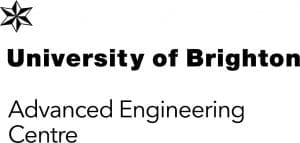The ENCOM-4 (Enhanced CONdenser in Microgravity) research project is aimed at the experimental and numerical study of condensation and its applications in ground and space conditions. In this prestigious ESA project, the AEC is represented by Dr. Anastasios Georgoulas and Prof. Marco Marengo.
(Not even the) Sky is the Limit
The project foresees the development of parabolic flight experiments and the definition of two experiments for the ISS.
Condensation is the change of the physical state of aggregation of matter from a vapour phase into a liquid phase and it can be found in many natural and industrial processes (energy conversion, refrigeration, space thermal control, chemical and pharmaceutical industries). The proposed research, starting from the knowledge acquired during the previous ENCOM projects, moves a step forward in the understanding of fluid-dynamics and heat transfer mechanisms that take place during filmwise and dropwise condensation. The project can count on a scientific team involving eleven academic partners (University of Brighton, University of Padova, Université Libre de Bruxelles, University of Mons, York University, University of Toronto, Aix-Marseille Universite and Aristotle University of Thessaloniki) and seven industrial partners (Eurapo S.r.l, EPSILON, OptecS.A, Hexxcell Ltd, Solar Tomorrow Inc., Hephaestus Boiler Makers and Engineering, AIRBUS Defence Space SAS) . The collaboration is fundamental to gain useful deep knowledge related to the mechanisms controlling condensation but, also, to orient the present research to possibly achieve some significant technological improvement. The project will also support two condensation experiments planned aboard the International Space Station (Condensation on Fins and In-tube Condensation).
Condensers have different behaviour on earth and in microgravity conditions. By performing experiments without the interference of gravity it is possible to provide the basics required to formulate precise models and support the optimisation of system designs. Besides, the knowledge of the gravity effect can provide key information for the design and optimization of condensation devices also in ground environment. In particular, the study of surface wettability opens nowadays a wide range of possibilities for heat transfer enhancement in the condenser.
The application perspective of this project includes advancements in in-tube convective condensation, dropwise condensation, water harvesting from humid air, air dehumidification, condensation in heat pipes, development of CFD tools for phase change heat transfer.
The present consortium is based on three cornerstones:
• Inclusion of different groups working already in these research topics which have effectively demonstrated a number of fruitful collaborations.
• Integration of sophisticated complementary equipment and facilities for elaborated experiments with powerful theoretical techniques.
• Close collaboration between strong research groups and industrial laboratories, which will lead to achieve practical solutions to real problems.






Leave a Reply